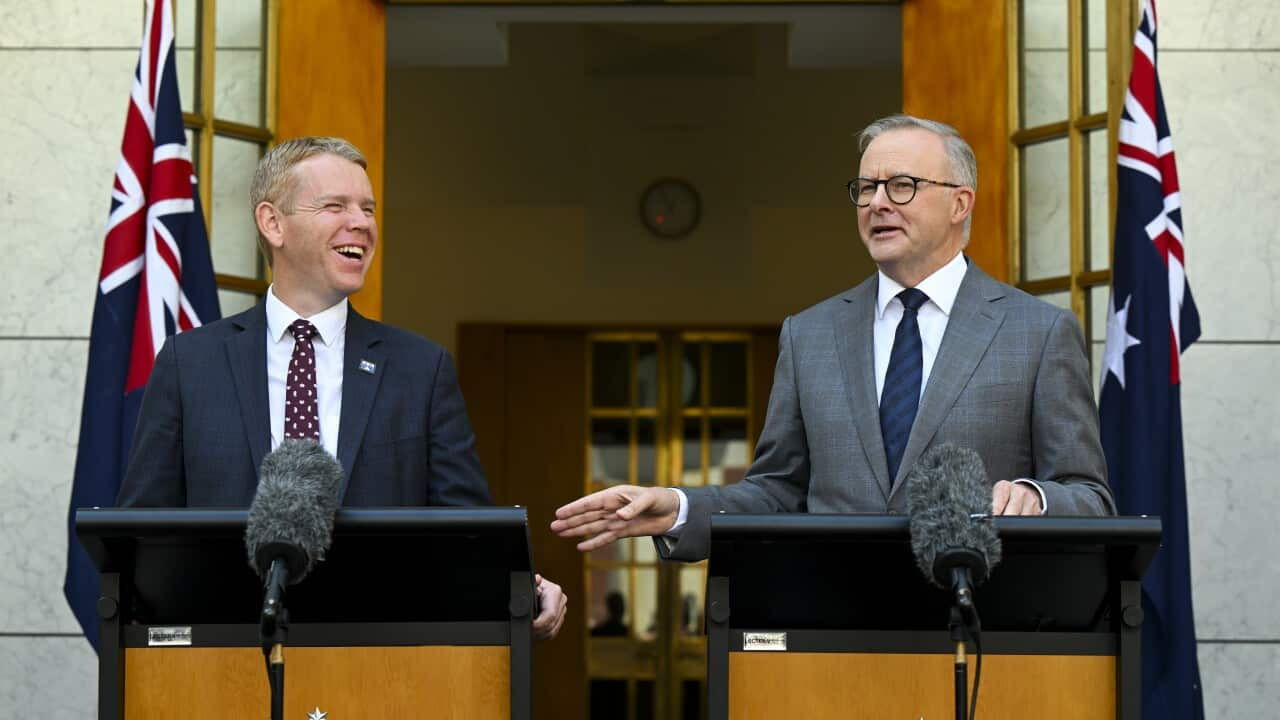Struggling to save money in her native New Zealand, the only way lawyer Mikayla Johnson felt she could get ahead amid the cost of living crisis was by moving to Australia.
So in January, the 24-year-old relocated from Auckland to Melbourne with her partner, hoping to double her income.
"It's a super terrifying thing — you've just got to take the risk and make the jump and just put your long-term goals first and think about your future," Johnson told SBS News.
"Buying a home is a goal of ours and it is more reachable with the salaries we're on here, whereas in Auckland you're kind of living a little bit paycheck to paycheck."
Crossing the Tasman is a well-worn path for New Zealanders to follow but recently, more Kiwis have been pursuing the promise of comparatively higher salaries in Australia.
Over the 12 months to February, New Zealand suffered a net migration loss of 47,700, the highest in its history and up from 47,000 in 2023, according to Stats NZ. In the year to September 2023, 23,800 more people left New Zealand for Australia than the other way around.

An aerial view of the Sydney skyline. Source: AAP / Mick Tsikas
"As we begin to head into some rather difficult economic times, there is an interest in going somewhere you can earn more and have more opportunity," he told SBS News.
"The other side of it is there is extensive recruiting in New Zealand at the moment by Australian industries and sectors and employers."
Employers often view New Zealanders as given their access to work rights in Australia.
Queensland Police recently coined the catchphrase "warmer days and higher pays" as part of a recruitment campaign aimed at luring New Zealanders across the ditch.
New Zealanders 'not able to find jobs'
Australia's economy has shown more resilience to global economic headwinds than New Zealand's, which in March entered its second recession in 18 months.
This has certainly helped Australia attract more Kiwis, economist for Infometrics Brad Olsen said.
"It's much more difficult to find a job so many people are going: 'I need to find a new opportunity.'
"We have a number of Kiwis who are not able to find jobs. We are seeing our unemployment rate rising, particularly those younger Kiwis looking for those opportunities."
Olsen added that there are some key sectors that New Zealanders were going after, including roles such as construction workers, nurses, teachers, police officers, technicians and service workers.
The trend has exacerbated concerns of a 'brain drain' — the movement of highly trained professionals away from their country of birth because of a perceived lack of opportunity — even with overseas migration to New Zealand at record levels.
The country welcomed 253,200 migrants in the year to February 2024, which Stats NZ describes as "provisionally, the highest on record for an annual period".
But while a 'brain exchange' does tend to help "balance out" the impact of those who choose to leave, the concerns shouldn't be brushed aside, Spoonley said.
"Ultimately the departure of skilled New Zealanders to live in a place like Australia should be a major policy and political debate," he said.
"I expect it will as the year proceeds become one."
The departure of skilled New Zealanders to live in Australia should be a major political debate.Professor Paul Spoonley
When asked about the challenge posed, New Zealand's Prime Minister Christopher Luxon told Sky News this month the movement had always been a feature of the relationship.
"My job as a new prime minister is to make sure I make this a country that New Zealanders can raise their families, that if they work hard they can get ahead," he said.

New Zealand Prime Minister Chris Luxon wants his country to be a place where Kiwis want to stay. Source: Getty / Hagen Hopkins
"Melbourne is a sporting hub and we are super into our sport so that was definitely in the front of our heads," she said.
"We're able to pay our bills and save and also spend at the same time.
"We have had a massive push start ahead."




